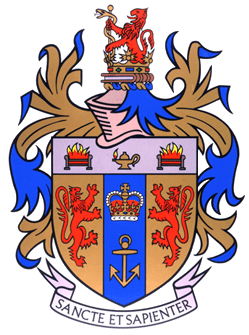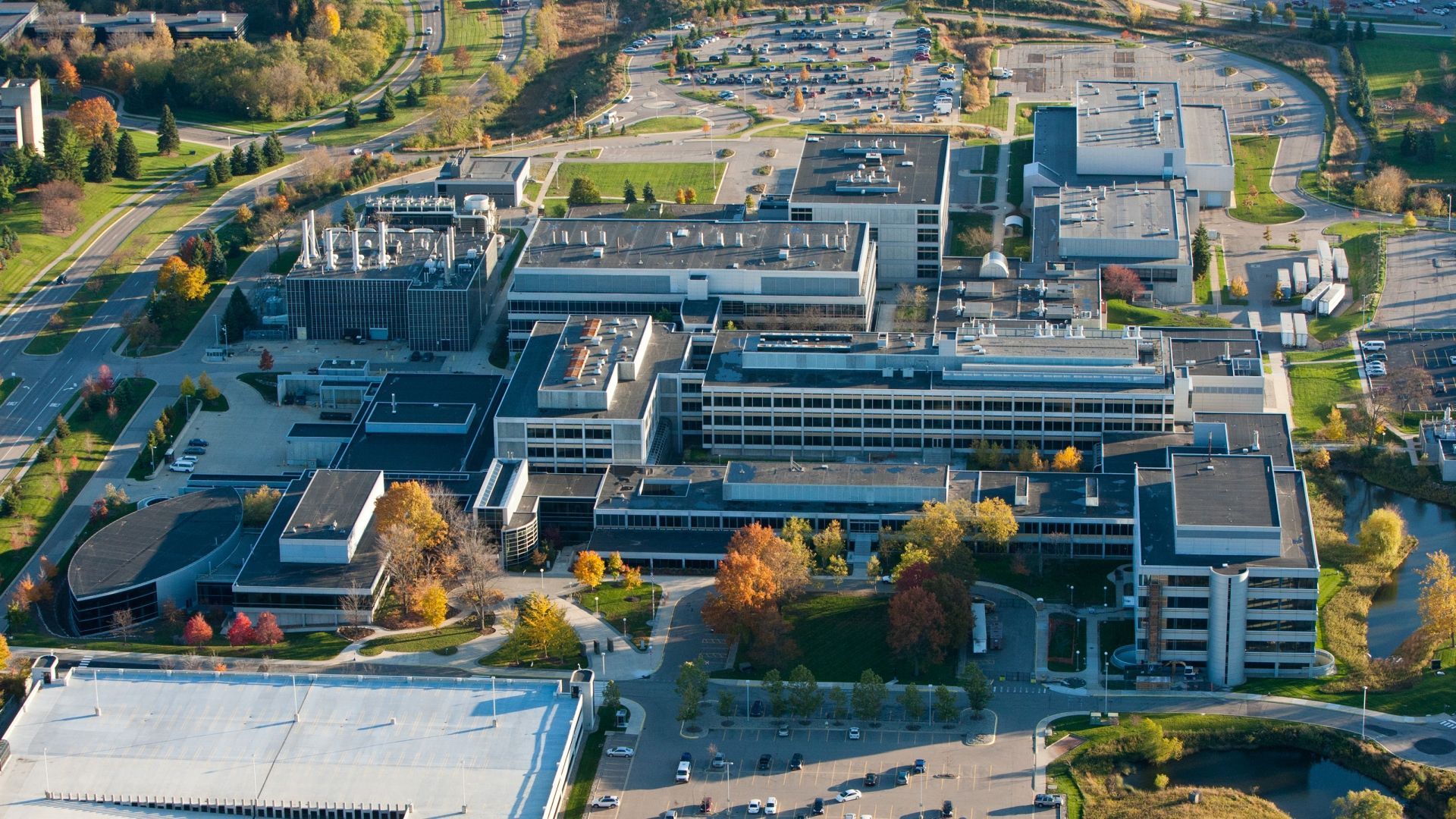
King's College London

Dr Ellen Clark-King
Summary
King’s College London, established in 1829, is one of England’s oldest and most prestigious universities, known for its strong commitment to education, research, and service to society. The university operates across five main campuses in London and offers a wide range of academic disciplines organised into nine faculties, including the Faculty of Arts and Humanities, Faculty of Life Sciences and Medicine, and The Dickson Poon School of Law.
The university has a strong research focus, with a research income of £236.3 million in 2022/23, and is ranked 6th in the UK for research power by the 2021 Research Excellence Framework (REF). King’s has contributed significantly to major scientific discoveries, including the structure of DNA. The university is also home to various research centres, including the Medical Research Council’s Centre for Neurodevelopmental Disorders and two National Institute for Health and Care Research (NIHR) Biomedical Research Centres.
King’s College London is a member of the Russell Group, representing 24 leading public research universities in the UK, and has partnerships with many institutions worldwide, including the University of Hong Kong and the National University of Singapore. The university offers joint degrees and collaborates on international projects.
Admissions to King’s are competitive, with the university receiving over 69,000 applications for undergraduate programmes in 2023 and making offers to 39.3% of applicants. The university maintains a diverse student body, with students from over 190 countries. King’s College London has an undergraduate acceptance rate of approximately 12.1%, with some of its programmes, such as Medicine, having significantly lower offer rates.
The university’s teaching calendar runs from late September to early June, with some faculties following different term structures. Graduation ceremonies are held twice a year, in January and July, with students from the medical and dental faculties graduating from Southwark Cathedral.
King’s College London is also noted for its extensive library facilities, including the Maughan Library, which houses over one million printed books and numerous electronic resources. The university has a strong commitment to sustainability, aiming to be net-zero carbon by 2030, and 100% of its directly purchased electricity comes from UK wind energy.
Notable alumni and staff include 14 Nobel laureates, such as Sir Michael Houghton and Archbishop Desmond Tutu. The university’s alumni network is extensive, with over 250,000 members worldwide, and its graduates hold influential positions in various fields, including politics, science, and the arts.
History
King's College London was founded in 1829 by the Duke of Wellington and King George IV, who granted its royal charter. The college was established within the tradition of the Church of England and aimed to provide education for the clergy and other members of the Anglican Church.
In 1828, the Duke of Wellington chaired the public meeting that launched King's College. However, just a year later, the Earl of Winchilsea publicly challenged Wellington about his simultaneous support for the Anglican King's College and the Roman Catholic Relief Act. This resulted in a duel in Battersea Fields on 21 March 1829, in which shots were fired but no one was hurt.
When the University of London was established in 1836, King's College became one of its two founding colleges, alongside University College London. Over time, King's College grew and developed through many mergers, including those with Chelsea and Queen Elizabeth Colleges in 1985, with the Institute of Psychiatry in 1997, and with the United Medical and Dental Schools of Guy's and St Thomas' Hospitals in 1998.
The Institute of Psychiatry, Psychology & Neuroscience is closely associated with the South London and Maudsley NHS Trust, which includes the famous Bethlem Hospital dating from the 13th century. Medicine has been formally taught at St Thomas’ Hospital since the 16th century and at Guy’s since the early 18th century. The Florence Nightingale Faculty of Nursing, Midwifery & Palliative Care descends directly from the world’s first professional school of nursing, founded by Florence Nightingale in 1860.
King's College has enjoyed financial and academic autonomy since 1994, while remaining part of the University of London. Since 2008, it has awarded its own degrees.
Throughout its history, King's College has had a distinguished reputation in various fields, including humanities, law, science, psychiatry, medicine, dentistry, nursing, and social sciences. The college has produced many notable alumni, including Archbishop Emeritus Desmond Tutu for his role in South Africa’s anti-apartheid campaign, biophysicist Dr. Rosalind Franklin, famous for her work in X-ray spectroscopy, and acclaimed children’s writer Sir Michael Morpurgo.
King's College's research has led to many significant discoveries and contributions to society. For instance, it was the site of research that led to the discovery of the structure of DNA, and it has informed air pollution awareness and policy, developed life-changing therapies, and made maths education available to underrepresented groups. Fourteen people from King’s and its associated institutions have been awarded the Nobel Prize, including Archbishop Emeritus Desmond Tutu and Professor Michael Levitt.
Today, King's College seeks to define the university of the future and make the world a better place. Its academics are researchers working within and influencing their industries, and its four Thames-side campuses in central London and Denmark Hill place it at the centre of leading global conversations in various fields. King's collaborates with its communities to address local issues, which can then be used across the UK and throughout the world.
Courses
King's College London offers a diverse range of courses designed to equip students with the skills and knowledge needed to excel in their chosen fields. The university is known for its strong academic programmes across various disciplines, including humanities, sciences, social sciences, and professional studies. Here is an overview of the key courses available at King's College London:
Undergraduate Courses: King’s College London offers a wide variety of undergraduate courses, providing students with the opportunity to specialise in areas that interest them. Some of the popular undergraduate programmes include:
- Business Management: This course covers essential topics such as finance, marketing, human resources, and operations management. It prepares students for a career in the business world by offering practical experience and theoretical knowledge.
- Law (LLB): King's law programme is one of the most prestigious in the UK. It provides a thorough understanding of legal principles, with opportunities to specialise in areas such as international law, human rights, and criminal law.
- Medicine (MBBS): The medical programme at King’s is highly respected and offers students comprehensive training in clinical practice, with placements in some of London’s leading hospitals.
- Psychology (BSc): This course covers the scientific study of the mind and behaviour, offering insights into cognitive processes, mental health, and human development.
- English Literature (BA): Students study a wide range of literary works, from classic texts to contemporary literature. The course encourages critical thinking and analysis.
Postgraduate Courses: King's College London also offers a wide range of postgraduate programmes for students looking to further their education or specialise in a particular field. Some of the key postgraduate courses include:
- Master of Business Administration (MBA): The MBA programme is designed for professionals looking to advance their careers in business. It covers key areas such as leadership, strategy, finance, and entrepreneurship. The course is known for its strong links with industry and high employability rates.
- MSc in Data Science: This programme provides students with the skills to analyse and interpret complex data, preparing them for careers in areas such as business analytics, finance, and technology.
- MSc in Global Health: This course focuses on the health challenges facing the world today, with an emphasis on public health, policy, and global health systems.
- MSc in Finance: This programme covers advanced topics in finance, including investment analysis, corporate finance, and risk management. It is ideal for those looking to work in banking, investment, or financial consulting.
- MA in International Relations: This course explores the complexities of global politics, international law, and diplomatic relations. It is ideal for students interested in careers in international organisations, government, or non-profits.
Professional Courses: King’s College London also offers a range of professional courses designed to help students gain the practical skills needed for specific careers. Some of these courses include:
- Nursing (BSc): This programme prepares students for a career in nursing, with practical training in hospitals and healthcare settings.
- Dentistry (BDS): The dentistry programme offers a combination of theoretical study and practical experience, preparing students for a career as a dentist.
- Teacher Training (PGCE): This course prepares graduates to become teachers, with specialisations in primary, secondary, and further education.
Short Courses and Online Learning: King’s also provides short courses and online learning options for students who may not be able to commit to full-time study. These courses cover a wide range of topics, from business and management to languages and creative arts.
Research Opportunities: For those interested in research, King’s College London offers PhD programmes across various disciplines. These programmes allow students to work alongside leading researchers and contribute to cutting-edge projects.
Global MBA rankings
King's College London's MBA program is known worldwide for its quality and impact. In the QS Global MBA Rankings, it is placed within the top 80 programs globally, showing its strong reputation in business education. In the UK, King's MBA is regularly ranked among the top 20, reflecting its academic strength and relevance to the industry. The program attracts students from over 50 countries, bringing a global perspective to the learning experience. King's College London is also ranked 36th in the Best Global Universities rankings by U.S. News & World Report. The MBA program has strong connections with major global employers, helping over 90% of graduates find skilled jobs within 15 months of finishing their studies.
Job integration rate
King's College London boasts an impressive job integration rate, with over 90% of its graduates securing highly-skilled employment within 15 months of graduation. The university's strong reputation for academic excellence and employer engagement is reflected in its 14th-place ranking among 140 UK universities in the Times Top 100 Graduate Employers report. This ranking is based on a survey of the UK's 100 largest graduate employers, including global leaders such as Google, Apple, BBC, Mercedes-Benz, Accenture, Goldman Sachs, and IBM.
General information
- King's College London| King's College London
- King's College London| Wikipedia
- King's College London : Rankings, Fees & Courses Details| Top Universities
- King's College (KCL): Rankings, Courses, Fees, Reviews| Shiksh
- King's College London| LinkedIn
- KCLSU| KCLSU
- King's College London | University Info| Masters Portal
- King's College London| Facebook
- King's College London Online Courses| FutureLearn
- King's College London | World University Rankings | THE Times Higher Education
- King's College London| University of London
- King's College London - Global Universities| U.S. News & World Report
- King's College London| The Russell Group
- King's College London UK | Ranking, Courses| SIUK
- King's College London| YouTube
- King's College London, University of London| Complete University Guide
- King's College London, University of London| UCAS
- King's College London| The Conversation
Explore the latest data on Business, Industry Leaders and Influencers, Organizations, Education, and Investors to stay informed and ahead.

Dr Ellen Clark-King
